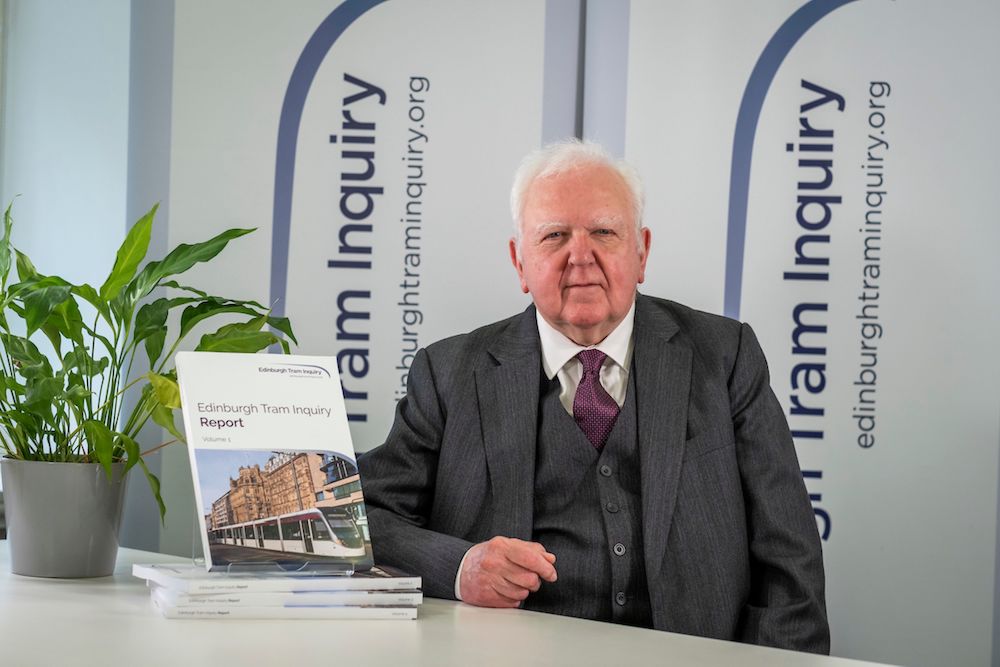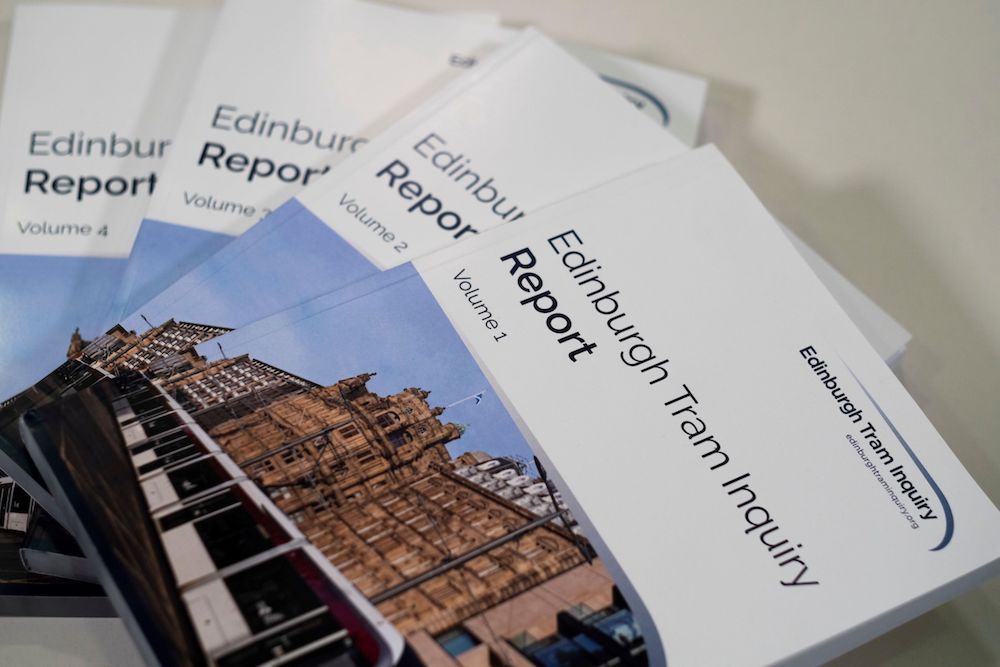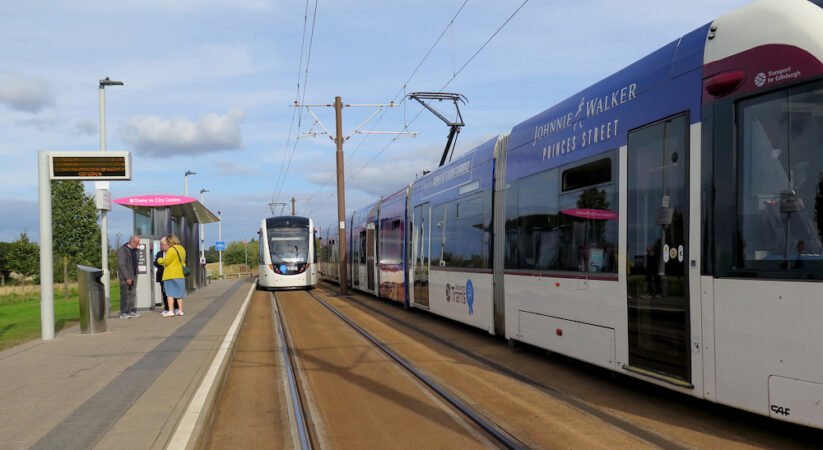Lord Hardie has today published the findings and recommendations of the Edinburgh Tram Inquiry.
The four volume report contains criticisms of several organisations whose acts or omissions were principally responsible for the failure to deliver the Edinburgh Trams Project on time, within budget and to the extent projected.

In particular Lord Hardie highlights considerable oversight, management and strategic mistakes by tie, the City of Edinburgh Council and Scottish Ministers.
The report also sets out 24 recommendations for the consideration of Scottish Ministers, including the considering whether there is a requirement for new legislation to allow for civil and criminal sanctions against relevant individuals or companies who knowingly submit reports that include false statements to councillors.
Lord Hardie said: “The Inquiry process has been thorough and robust but also complex, with literally millions of documents that had to be carefully reviewed and detailed contractual issues to investigate.
“This work has been time-consuming but necessary to produce a report which not only provides answers to what went wrong with the Edinburgh Trams Project, but also clear recommendations for future transport projects.
“What is clear from the Inquiry’s work is that there was a litany of avoidable failures on the parts of several parties whose role it was to ensure that public funding was spent effectively and to the benefit of Scotland’s taxpayers, and that the Edinburgh Trams Project was delivered efficiently.
“Poor management and abdication of responsibility on a large scale have had a significant and lasting impact on the lives and livelihoods of Edinburgh residents, and the reputation of the city.”
The project involved the construction of a tram network consisting of at least line 1a (from the Airport to Newhaven) and the purchase of tram vehicles to operate on the network.
From reports submitted to them councillors expected line 1a to be completed within the available budget of £545 million and to be open for revenue service by the summer of 2011.
The construction of line 1a was delayed and a restricted line from the Airport to York Place opened for revenue service almost 3 years late in May 2014 and at a reported cost of £776.7 million, which was £231.7 million in excess of the available budget for the entire line 1a.

Following the conclusion of the public hearings Lord Hardie reviewed the evidence in light of the closing submissions and the documentary productions and undertook investigations concerning the actual cost of the project.
The reported cost was an understatement because City of Edinburgh Council allocated costs to other budgets that truly related to the project and failed to include the net present value of borrowing £231 million to complete the restricted line.
There was also a substantial claim by a landowner of which there had been no awareness at the date of the reported cost. The best estimate of the cost of the restricted line is £835.7 million.
The report highlights the actions of tie, the City of Edinburgh Council and Scottish Ministers as being principally responsible for the failure to deliver the project on time, within budget and to the extent projected.
The principal causes of the failure to deliver the project within budget can be summarised as follows:
- tie’s departure from the procurement strategy that had been intended to manage risk out of the project
- The failure of tie to work collaboratively with CEC and others including, in particular, Parsons Brinckerhoff (“PB”) and BSC
- Failure by tie to report accurately on progress and failure by CEC officials to monitor progress
- Delay with production of design due to poor performance by PB and failure by tie and BSC to manage the design contract effectively
- tie’s failure to follow the guidance about optimism bias when preparing various versions of the Business Case such that the cost of the project was underestimated
- tie’s failure to achieve the price certainty sought by CEC and to transfer risk to BSC in accordance with the procurement strategy
- The negotiation of the Infraco contract on terms that were inconsistent with the FBC and prevented progress being made in the construction of the project when there were Notified Departures from the pricing assumptions in the contract
- The governance structure did not follow any recognised model. There was a lack of clarity as to who had responsibility for the performance of certain tasks and there was some overlap regarding the respective roles of the various bodies created, and individuals appointed, to deliver the project. It is also unclear whether all of the individuals appointed to specific roles actually fulfilled these roles
You can red the full report by clicking here.




